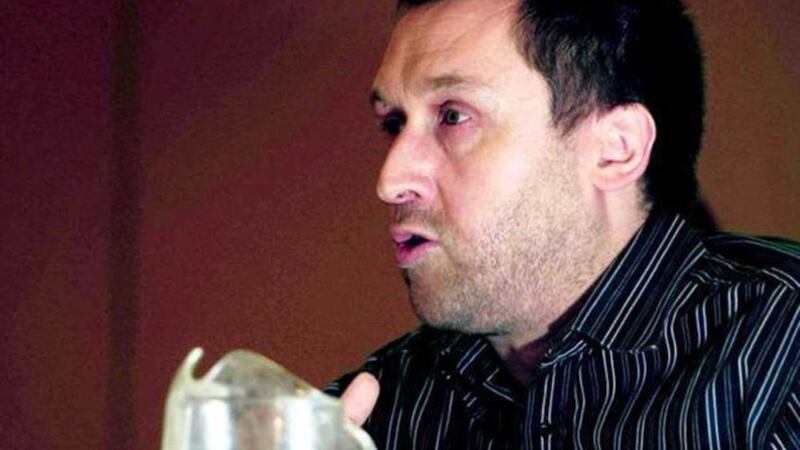THAT a respected investigative journalist is to be chief spinner for the DUP and Sinn Féin is a shock, and more significant than media navel-gazing.
On top of distaste at the control freakery displayed in his appointment, there is disappointment in the man.
David Gordon is to be the first ‘Press Secretary to the Executive’.
But the job was not advertised. Criticism brought a sneering blast in habitual DUP and SF style rubbishing the critics.
You would hope it was drafted without reference to Gordon, not yet on duty. In the job he is about to leave, as editor of the Stephen Nolan show, he would have been hard at work taking apart the defence of any such appointment, gearing up the brass lungs at the microphone to denounce it.
In any case, it won’t do to say this is how spinners are appointed elsewhere. The glut of Spads at Stormont is already a scandal, the culture of jobs for friends and family helping to leach away respect for the structures, and for politics.
Gordon is to be the servant of the executive, a public servant paid from the public purse. In open competition his record and skills would assuredly have won him the job. Why on earth wouldn’t he have wanted that exercise to happen?
But it’s also a gunk that he should want to be the whisperer behind the uneasy, shared throne, supposedly front-man equally for DUP and SF – in effect speaking for Arlene Foster and Martin McGuinness.
The job is hard to figure. Then again, Sinn Féin’s northern boss and the DUP leader do share a steely resolve to maintain Stormont, no matter how differently their parties see ‘power-sharing.’
Gordon’s book on The Fall of the House of Paisley probably gave Arlene no second thoughts; hers is a post-Paisley DUP.
But the new ‘Press Secretary’ has until now been a ripper-away of official secrecy, hunting down waste of public money and downright if disguised dishonesty.
Gordon has made his name as a hound on the Freedom of Information trail, tireless Fourth Estate outrider.
Poacher-turned-gamekeeper doesn’t do it. As has already been noted, it will now be one of his chores to riffle through stalled, unanswered FoI applications.
Before the BBC scooped him to edit Nolan, he brought forcefulness to the staid Belfast Telegraph, embarrassing the almost-unembarrassable by charting politicians’ collection of expenses.
Now those forensic skills have been hired by an administration accustomed to a lack of transparency. Mystifying, at least at face value.
Someone of proud left-wing principle now linked to the rusty compromise of joint first and deputy first, the self-important, permanent two-party executive? Midlife crisis?
The last big-hitter BBCNI lost was Martina Purdy. God won in that case, or at least this is how Sister Martina pitched it.
Political reporting lost someone tenacious and honest, colleagues lost a remarkably unselfish, apparently tireless office-stalwart.
But when Martina hied her to the nunnery, the Falls Road convent got a journalist, as she said herself, who had mislaid her taste for journalism.
Now the trade’s been abandoned by Stephen Nolan’s right-hand man, hardly job specification for a long career.
A seeker after truth arrives slap into the middle of sizeable scandal emerging in instalments courtesy of this paper, Spotlight and others, Arlene giving us in response her much-practised ‘oh for goodness sake,’ Martin his ‘I know nothing’ Mr. Wide Eyes.
The appointment of the first Press Secretary takes a sharp tribune of the people out of commission. Executive 1, Fourth Estate minus 1.
There is, as always, another way to look at it. The old Stormont merged easily with the BBC, Belfast Telegraph, News Letter, UTV, journalists becoming Stormont press officers entirely uncontroversially.
Direct Rule made more allies among more conservative hacks. But until, say, seven/eight years back, some of us thought one virtue of this benighted society was that journalists here did not instantly identify with authority, the nucleus of a new establishment.
Elsewhere, the media party happily with ministers, advisers, press officers, one big political class. In Dublin and London journalists refer easily to ‘our government’.
No ‘our’ for us. So it may even be a sign of normality that a fine journalist has jumped to what is known in the trade as the dark side.
Which can certainly do with a spinning class. The crude swipe from his new employers at critics of his appointment made a bad start. There’s an autumn chill in the air.








